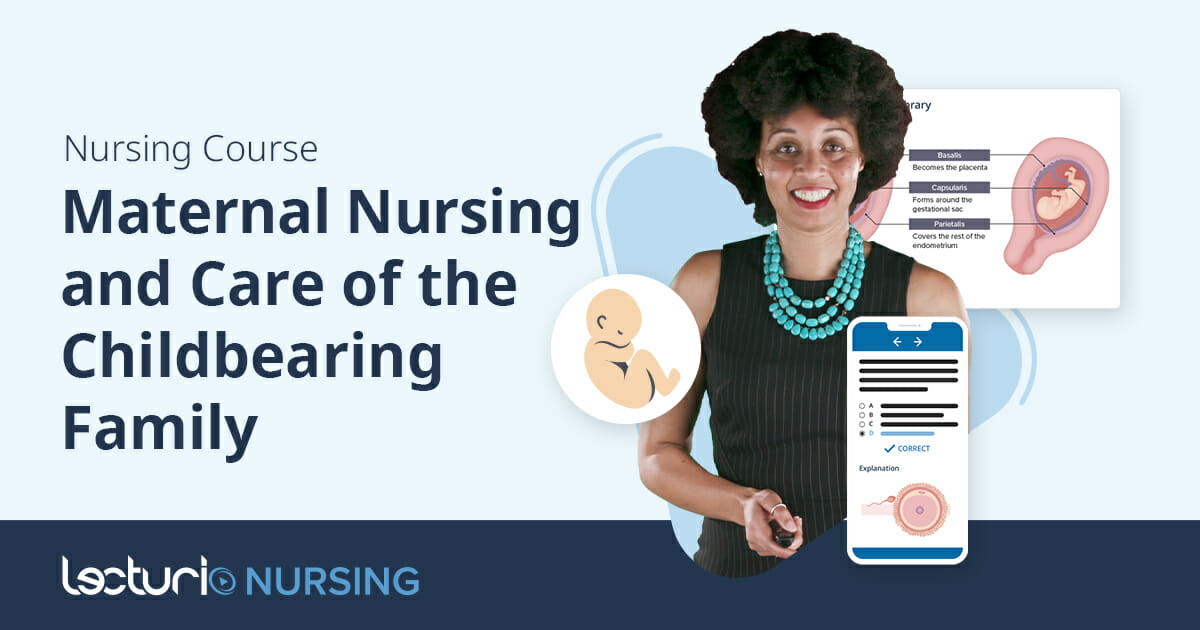Regardless of whether you want to be a mental health nurse or not, you’re going to have to take a mental health nursing class while in nursing school. The concepts you learn in mental health nursing class are interesting and useful for any nurse.
Even if you don’t work specifically as a mental health nurse, you will most likely care for psychiatric patients at some point during your career as a nurse.
Below, I’ll share everything you need to know about mental health nursing class, including why it’s important and what you need to do to pass it.
What Is Mental Health Nursing Class?
Mental health nursing class teaches students about various mental health disorders and illnesses. After learning about different psychiatric conditions, you’ll be taught to apply the nursing process to determine the best methods of nursing care for these patients. You’ll also learn about psychiatric medications that are used to treat mental health patients and how they work.
A significant component of the class is the clinical experience, where you will spend time on a psychiatric ward at a hospital. This provides hands-on experience and gives you an opportunity to see what a day in the life of a mental health nurse looks like.
Are mental health nursing and psychiatric nursing the same?
Mental health nursing can be seen as a broader term that encompasses psychiatric nursing. It includes the promotion of mental health, prevention of mental illnesses, and care of people with mental health issues across various settings, not just psychiatric hospitals.
Why Is Mental Health Nursing Important?
Mental health nursing is important because the information you learn in this class can easily be applied to any nursing job. Even if you don’t work on the mental health unit, you’re going to likely encounter mental health patients at some point as a nurse.
Some mental health patients have medical conditions that require them to be admitted to the medical floors or ICU instead of the psychiatric unit.In addition, tons of stable people who are living with mental health conditions might end up in the hospital for a medical reason. You’ll be caring for these patients and supporting their medical needs, but having a solid understanding of mental health conditions will help you better and more comprehensive care for them.
Essential Tips for Mental Health Nursing Class
I personally found Mental Health Nursing to be an interesting class and I really enjoyed it. The clinicals were very interesting and I found the actual subject matter hard to put down. Not everyone will feel this way but either way, it is important to take some steps to ensure that you succeed in passing mental health nursing class.
Below, I’m sharing some essential steps to help you pass mental health nursing class.
Familiarize yourself with the content ahead of time
Review your class syllabus and look over some of the subject matter before attending class. This helps you to develop a foundation of knowledge and gives you an idea of where you’re starting from, showing areas of strength and weakness. Review key topics like psychiatric conditions, treatment approaches, and common psychiatric medications.
Engage in lectures and clinicals
Showing up prepared to class makes it easier to engage in the lectures and clinicals. Always ask for clarification where needed and engage in class discussions. This helps you stay focused and retain as much information as possible.
Get into a study routine
Start a habit of studying regularly, reviewing upcoming lecture information before class, and then reviewing your notes after class. Different study resources may be helpful such as online practice tests or study groups with your peers.
Find the best resources
There are plenty of helpful study resources out there to help you learn and grow your knowledge, many of which are already at your fingertips. Ask your professor plenty of questions and utilize their office hours to go over test questions. Take time to read through your textbooks and complete online practice tests as well.
Communicate with your colleagues
Building professional relationships with your classmates and professor will help you excel in mental health nursing class. It is important that you feel comfortable asking questions and opening up discussions about the course content. Don’t be afraid to attend your professor’s office hours to ask questions or talk about the subjects. Talk with your classmates as well and plan group study sessions for exams.
How to Study for Mental Health Nursing
The first important thing you’ll have to learn in mental health nursing class is the different psychiatric conditions and how they are treated. But this is only one part of it: You’ll also learn about the concept of therapeutic communication and best nursing practices related to the different conditions, which can get a little tricky.

Take the Course: Mental Health Nursing
Brenda Marshall, EdD, MSN, RN leads you through every mental health topic relevant for the NCLEX and shares her experiences treating mental health clients from her own private practice.
Group conditions to get better overview
As far as learning the actual psychiatric conditions, it might help to group them together so you don’t get overwhelmed by the amount of different conditions. For example, group together conditions based on whether they’re anxiety disorders, depression, mood disorders, psychosis, substance abuse disorders, and so on. Then, consider the different types of treatment criteria and nursing considerations for each group, just going group by group. This can make it easier to study a lot of information at once.
Focus on therapeutic communication
When it comes to answering test questions, you’ll have to learn how to use therapeutic communication. Therapeutic communication is what you use during any patient interaction, but it is especially important when working with psychiatric patients.
One way to answer psych questions correctly involves considering the patient’s condition and what might cause them to feel worried or stressed while also considering the patient’s physical needs. How can you best meet their needs as a nurse while also taking steps to not upset them based on their mental health disorder?
It is important to keep in mind that most mental health conditions aren’t going to be fully cured. Mental health nursing is about learning the methods used to manage these diseases, such as group and individual therapy, medications, and lifestyle changes.
How to Get the Most Out of Your Mental Health Nursing Clinicals
Your clinicals for mental health nursing class will likely feel a lot different from any other clinicals you do while in nursing school. This is because you won’t be doing very much (if any) patient care or medication administration. It will mostly involve communicating with patients and observing their conditions.
Try to prepare ahead of time for your clinical rotations by studying your class material. If you observe a certain condition, review it after class and think of any questions you have for your professor or clinical instructor. When I took mental health nursing class, the clinicals were all about observing the patients and how the nurses interacted with them. Of course, it’s not as hands-on as other clinical rotations but it was interesting, nonetheless!
How to Pass Mental Health Nursing Class
To pass mental health nursing class, you’ll need to be engaged in the class and paying close attention. That way you can immediately notice what subjects you don’t feel clear on and ask questions accordingly. Develop a solid basis of knowledge from your lectures and apply that knowledge in clinical to try to make sense of different patient conditions and how they are managed.
Understand that your clinical rotations will be a little different than what you’ve experienced before. Take them as an opportunity to observe the mental health nurses and get an idea of whether it’s a field of work you might want to try one day.
Another important tip to consider to pass mental health nursing class is to remember to take care of yourself. Nursing school can be a trying time of life. You have to take care of your own mental health in order to pass your classes and best support the mental health of others. Make sure to take some time to exercise, meditate, and rest so that you can show up to your classes feeling your best.
Final Thoughts
Mental health nursing class has the potential to be a unique and exciting class and clinical rotation. Not only will you learn about different mental health conditions, how they affect the body, and how they are treated, but you will also get the opportunity to spend real time in a psychiatric ward at the hospital.
Nurses play a unique role in helping mental health patients who are admitted to the hospital. Some nurses find that this is their ideal job while others don’t think it’s a good fit for them. Keep in mind that mental health nursing is one of the higher-paying specialties for nurses, so it could be beneficial if you find that this type of work makes you happy.
To succeed in mental health nursing class, you’ll want to show up to your classes prepared and ready to engage, and make sure to take care of yourself during the semester. Utilize study resources like study groups and online test questions to practice the material and help it stick in your brain.





